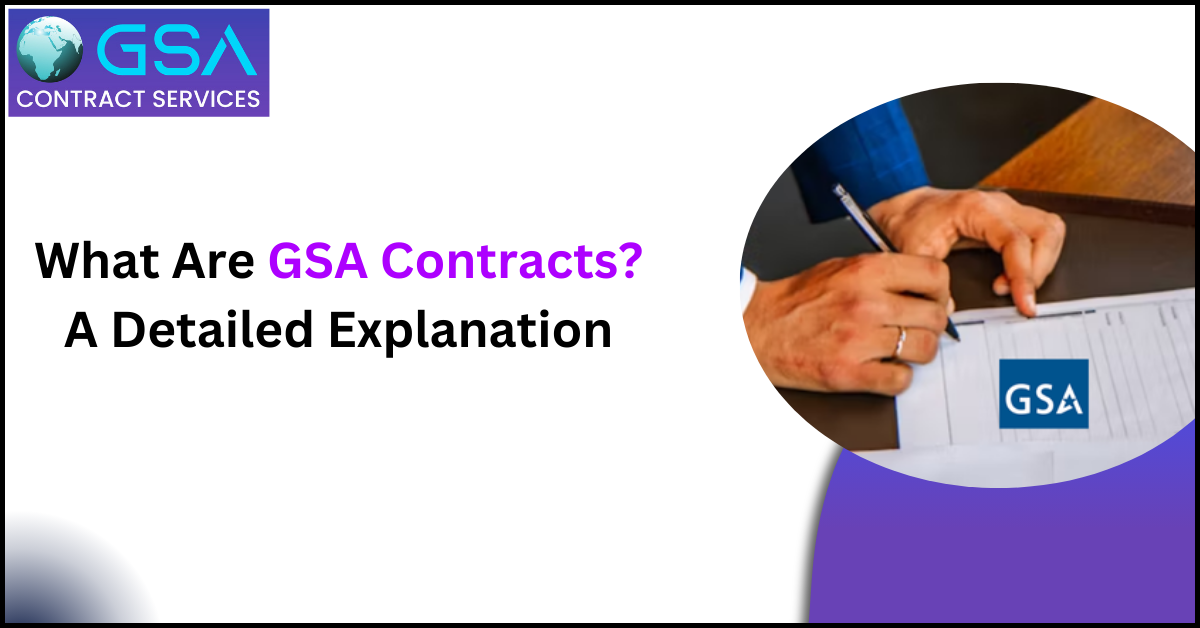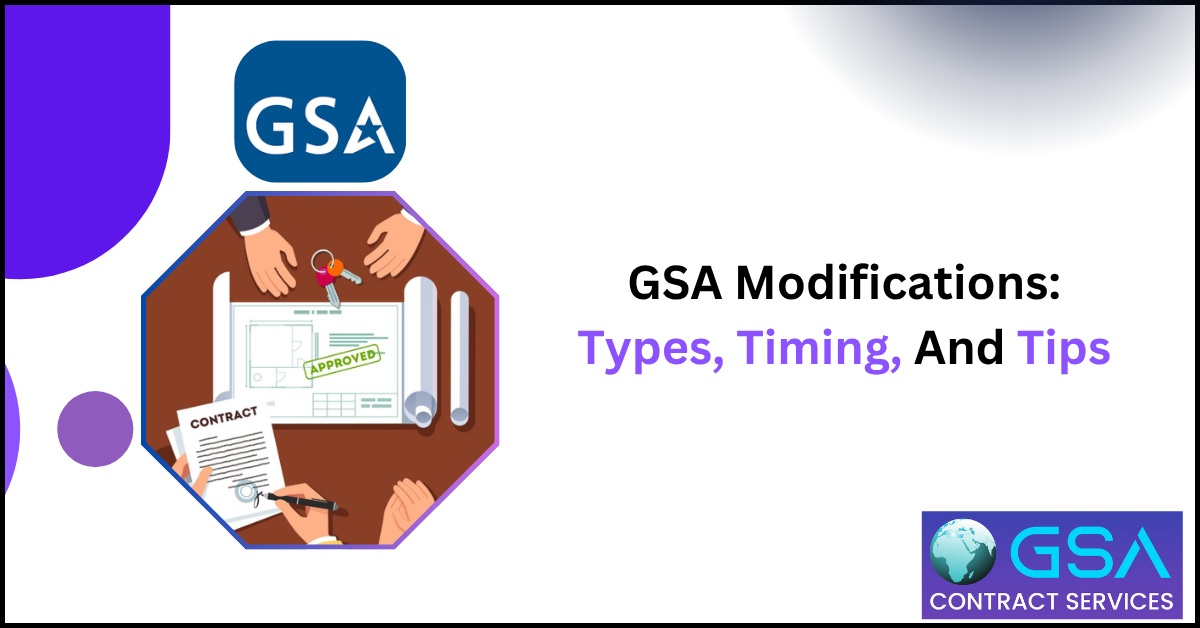Getting a GSA Schedule contract opens the door to selling your products or services directly to the U.S. government, one of the world’s largest buyers. But not every business is eligible to hold a GSA contract. This guide will help you quickly determine if your business qualifies and what steps you should take if you’re not quite there yet.
Why GSA Contracts Matter
The General Services Administration (GSA) runs the Multiple Award Schedule (MAS) Program, which streamlines how federal agencies buy from vendors. With a GSA contract:
- You can list products on GSA Advantage, the government’s online shopping platform.
- You become part of a pre-vetted vendor pool, giving you credibility and access to more opportunities.
- You simplify your sales process by offering pre-negotiated prices and terms.
Fact: In FY2023, the government purchased over $50 billion in goods and services through GSA Schedule contracts.
Additionally, through the GSA Schedule, you can also sell to other federal agencies as well as state and local governments through the Cooperative Purchase Program. This means it is not only the GSA dnd major federal agencies that buy from you, but also state and local governments, making your market pool extremely wide.
Basic Eligibility Requirements For A GSA Schedule Contract
If you’re considering applying, you’ll first want to make sure your business meets the GSA’s minimum qualifications. Here’s a breakdown:
You must have:
- At least 2 years in business (in most cases)
- Financial stability with supporting documentation
- A commercially available product or service (must be sold in the open market)
- A DUNS number (or UEI as of 2022 under SAM.gov updates)
- An active SAM.gov registration
- Past customer invoices or project history showing successful performance
- A pricing strategy that’s competitive for government buyers
Exceptions to the 2-Year Rule:
Some small or disadvantaged businesses may apply through certain programs like Startup Springboard (GSA IT Schedule 70). However, this is rare and still requires documentation of expertise and readiness.
Required Documentation Checklist
To apply, you’ll need to prepare and submit:
- Financial statements (Balance Sheet, Profit & Loss)
- Past performance references (at least 3 customer contacts)
- Product/service price list
- Commercial Sales Practices (CSP) disclosures
- Technical proposal explaining how you deliver your services/products
- Completed solicitation responses (via GSA eOffer system)
Tip: Your prices must be equal to or lower than what you offer your “Most Favored Customer” in the commercial market.
Signs You’re NOT Yet Eligible
Knowing where you stand can save you time and money. You may not be ready for a GSA contract if:
- Your business is less than 2 years old, with no past commercial sales
- You lack financial documentation or are operating at a loss
- Your product is not commercial, meaning it’s not offered to the public
- You do not have established customers or references
- You can’t clearly explain your service methodology or deliverables
What Happens If You Apply Without Being Eligible?
Applying before you’re ready can seriously set you back. Here’s what to expect:
Application Rejection
- GSA reviewers will reject incomplete or non-compliant offers.
- Rejection goes on record and may delay your ability to reapply.
Wasted Time and Resources
- The offer preparation and review process takes 3 to 12 months.
- You’ll lose valuable time that could’ve been used improving operations.
Damaged Credibility
- Repeated rejections can flag your business internally.
- It shows a lack of readiness or understanding of federal procurement.
Fact: GSA turns down over 50% of offers due to incomplete documentation or non-compliant pricing strategies.
Is Your Product or Service GSA-Appropriate?
Some categories sell better on GSA than others. These include:
- IT Products & Services
- Office Supplies
- Facilities Maintenance
- Professional Services (e.g., consulting, staffing)
- Security and Law Enforcement Equipment
- Industrial Products and Tools
If your product or service doesn’t align with federal demand, a GSA contract might not be the best sales channel.
A Quick GSA Self-Check
Here’s a rapid checklist. If you can check off YES to at least 8 out of 10, you’re likely eligible.
| Questions | Yes/No |
| 1. Has your business been operating for at least 2 years? | ✅ / ❌ |
| 2. Are you financially stable (positive balance sheet)? | ✅ / ❌ |
| 3. Do you offer products/services to the commercial market? | ✅ / ❌ |
| 4. Are your prices competitive and defensible? | ✅ / ❌ |
| 5. Can you provide 3 past performance references? | ✅ / ❌ |
| 6. Is your SAM.gov registration active? | ✅ / ❌ |
| 7. Have you invoiced clients in the past 12 months? | ✅ / ❌ |
| 8. Do you have a clear pricing structure and sales history? | ✅ / ❌ |
| 9. Are you ready to comply with GSA terms & reporting? | ✅ / ❌ |
| 10. Do you understand your target NAICS code? | ✅ / ❌ |
What To Do If You’re Not Eligible Yet
Don’t worry—many businesses don’t qualify the first time around. Here’s how to prepare:
Build Your Commercial Sales History
- Sell consistently to commercial clients.
- Keep records and gather testimonials.
Register and Maintain SAM.gov
- Keep your data up-to-date.
- Ensure no errors with UEI and NAICS codes.
Strengthen Your Financials
- Focus on profitability and clear bookkeeping.
- Separate personal and business finances.
Develop a Solid Marketing Plan
- Know how you’ll reach federal buyers once awarded.
- Understand competitor pricing and positioning.
Why Work With A GSA Consultant?
A GSA consultant or service provider (like us) helps you navigate the entire process—saving time, reducing errors, and boosting your chances of approval.
Here’s how we help:
- Determine eligibility upfront
- Prepare and submit your GSA offer
- Craft compliant pricing models
- Handle catalog uploads to GSA Advantage & FedMall
- Manage EDI integration and order automation
- Provide post-award compliance support
Businesses that work with GSA consultants are 3x more likely to get approved on their first try.
Final Thoughts
Getting a GSA Schedule contract is a big step, but not every business is ready for it. Understanding the qualifications can save you time and money. If you’re eligible, prepare carefully. If not, use this guide to get ready the right way.
Need help figuring it out? Our team offers free assessments to check your GSA readiness and get you on the right track.
Summary Checklist
- 2+ years in business
- Commercially available products/services
- Competitive pricing
- Solid financials
- Positive past performance
- Active SAM registration
- NAICS code match
- Compliance readiness
Let us help you take the guesswork out of GSA.
Contact us today for a free eligibility check!
Frequently Asked Questions
Can a business qualify for a GSA Schedule if it has less than two years of operational history but strong past performance references?
Yes, if you can demonstrate past performance (via client references/contracts) and meet Trade Agreements Act (TAA) compliance, even with under two years in business.
Does subcontracting under a prime contractor’s GSA Schedule require our own GSA Schedule?
No, subcontracting under a prime’s Schedule doesn’t require your own, but selling directly to agencies does.
Are international businesses without a U.S. headquarters eligible if they have a D-U-N-S number and SAM.gov registration?
Yes, but additional requirements may apply if registered in SAM.gov with a D-U-N-S number and a U.S. branch/agent.
How does a pending federal investigation (e.g., OSHA, EEOC) impact GSA Schedule approval chances?
Possibly, but unresolved issues (e.g., compliance violations) may delay or disqualify approval until resolved.
Do we lose eligibility if our company size exceeds NAICS standards after GSA Schedule approval?
No, but you must recertify your size annually; eligibility is based on size when submitting your offer.
Can a joint venture apply for a GSA Schedule if only one partner has relevant experience?
Yes, if the joint venture’s managing partner has relevant experience and the JV agreement meets GSA criteria.
Are businesses with a history of bankruptcy eligible, provided they’re now financially stable?
Yes, if you prove current financial stability (e.g., audited records) and disclose past bankruptcy transparently.
Does a GSA Schedule automatically cover new products/services added after contract award?
No, you must submit a modification request to GSA; new items must also meet TAA compliance.
If our SAM.gov registration is active, does that fulfill all compliance requirements for GSA?
No, SAM.gov is mandatory, but GSA also requires financial documentation, past performance, and compliance proofs.
Can a company with a past suspension/debarment regain GSA eligibility after reinstatement?
Yes, after reinstatement, but you must disclose the issue and demonstrate corrective actions in your proposal.




